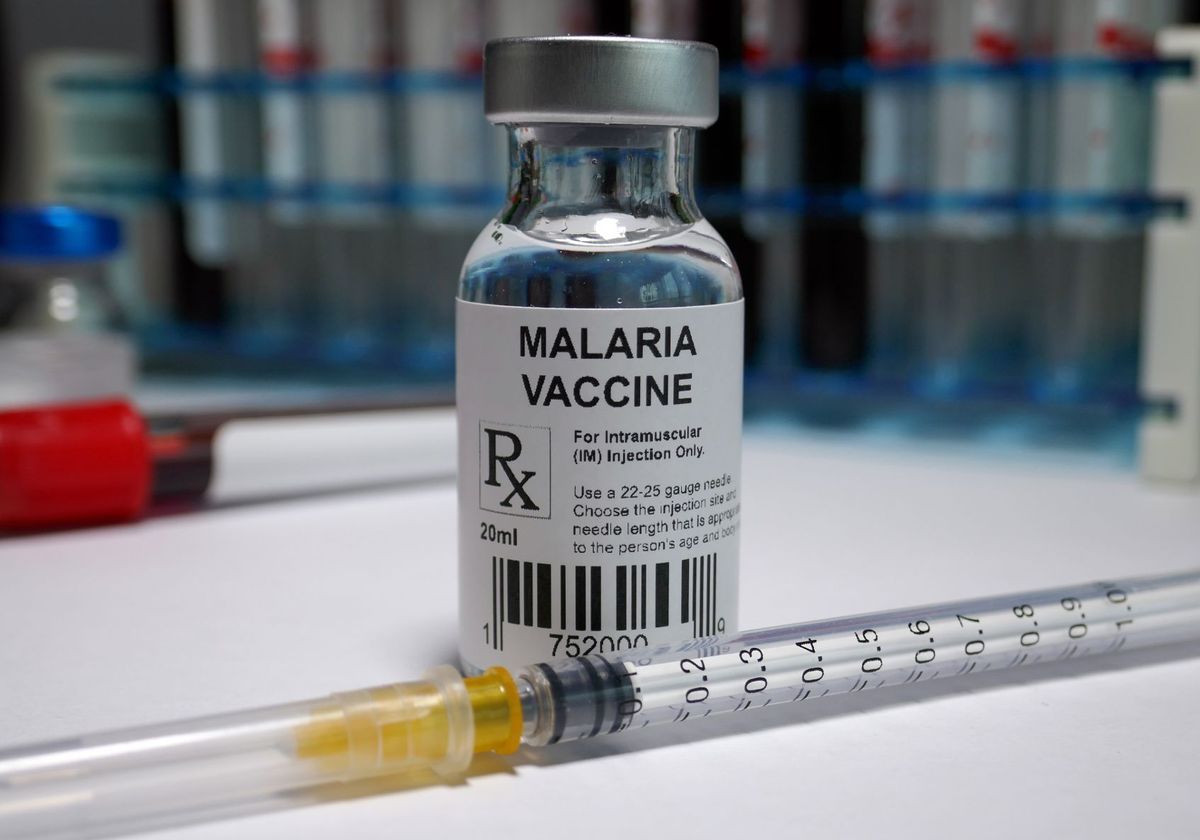Time to rid Nigeria of malaria
Every year, the World Mosquito Day is observed on August 20, in honour of Sir Ronald Ross, the man who discovered the link between mosquitoes and the transmission of malaria in the year 1897. Ross discovered that the mosquito, one of the most lethal insects in the world, had its females disseminate malaria among humans. […]

FILE PHOTO: Malaria vaccine
Every year, the World Mosquito Day is observed on August 20, in honour of Sir Ronald Ross, the man who discovered the link between mosquitoes and the transmission of malaria in the year 1897.
Ross discovered that the mosquito, one of the most lethal insects in the world, had its females disseminate malaria among humans. Therefore, the day is primarily to keep people informed about this insect, the causes of malaria, precautions as well as preventions.
Days after NNPC pacts, Shell, others begin process to end lawsuits
How schools hike WAEC, NECO fees, deny poor students opportunities
Organised every year by the London School of Hygiene & Tropical Medicine, the day also highlights the efforts of healthcare officials and non-governmental organisations (NGOs), among others, in fighting the malaria disease caused by mosquitoes.
Other mosquito-borne diseases include the Zika virus, West Nile virus, Chikungunya virus, dengue and malaria. Even though they may not be fatal, they have devastating consequences. For example, the Chikungunya virus causes crippling joint pain while Zika infection in pregnant women results in severe birth defects.
But it is malaria that has the greatest global impact. According to the World Health Organisation (WHO), malaria alone is responsible for the death of 400,000 people per year with Africa having disproportionately about 95% of malaria cases and 96% of deaths. Out of the total, 80% of the deaths are of children under 5 years of age.
According to the 2020 World Malaria Report, Nigeria had the highest number of global malaria cases (27 % of global cases) in 2019 and the highest number of deaths (23 % of global deaths).
Unfortunately, malaria is transmitted by the Anopheles stephensi mosquitoes all over Nigeria as 76% of the population live in high transmission areas while 24% live in low transmission areas.
Malaria has had devastating effects on the country. For example, the National Malaria Elimination Programme (NMEP) estimates that the disease costs Nigeria $660 million annually.
To eradicate the disease, there have been various initiatives including the Roll Back Malaria. There is Nigeria’s NMEP. And over the years, the Nigerian government has received support and funds for malaria control from Global Fund, USAID’s President’s Malaria Initiative (PMI), UK’s Department for International Development (DFID), now called Foreign, Commonwealth & Development Office (FCDO), Non-Governmental Organisations (NGOs), World Health Organisation and private sector companies, especially in the extractive industry. Some have implemented their own malaria control programmes
In addition, Nigeria has also secured loans from the World Bank, the African Development Bank and the Islamic Development Bank for the eradication of the disease.
These have led to the provision of long-lasting, insecticide-treated mosquito nets, indoor insecticide spraying campaigns, latest drug therapies to treat infections, prevention and community education campaigns.
But these initiatives have not rolled back or eradicated malaria as required as it requires sustained local funding and a strong political commitment at the federal and state levels, which has been lacking. It is in view of that, we welcome the council on Malaria. Last Tuesday, President Muhammadu Buhari inaugurated the End Malaria Council in line with the African Union Assembly Declaration for the Establishment of EMCs continent-wide.
The president, who appointed Alhaji Aliko Dangote, as chairman of the 16-member council, said eradicating malaria and its ancillary effects would save the country from the estimated economic burden of the disease totalling about N687bn in 2022 and N2trn by 2030.
He said the successful implementation of the council’s agenda will lead to N2tn savings in the next eight years.
This is indeed a great step in the efforts toward tackling the scourge and we urge the chairman and all members to treat the assignment with the seriousness it deserves.
While the council gets to work, it is important to point out that Nigeria requires more than mere selling/ provision of mosquito nets, as witnessed in the past, but a wholesome review of the nation’s healthcare sector to develop new interventions and control measures in a healthcare system restructured, strengthened and made ready to face the challenges of malaria elimination.
Governments must commit to scaling up funding for malaria control, the same way they aggressively pursued HIV/AIDS and COVID-19 prevention and control. New emphasis should also focus on research.
Furthermore, it is time to go back to the basics. Hygiene should be taught in schools and at community levels with renewed management of the environment that focuses on mosquito controls through the removal of their breeding sites and larvae, starting with clearing of bushes around the house and other buildings.
The federal government must also accelerate the rollout of the anti-malaria vaccine in Nigeria, being the global epicentre of mosquito and its disease, malaria.
